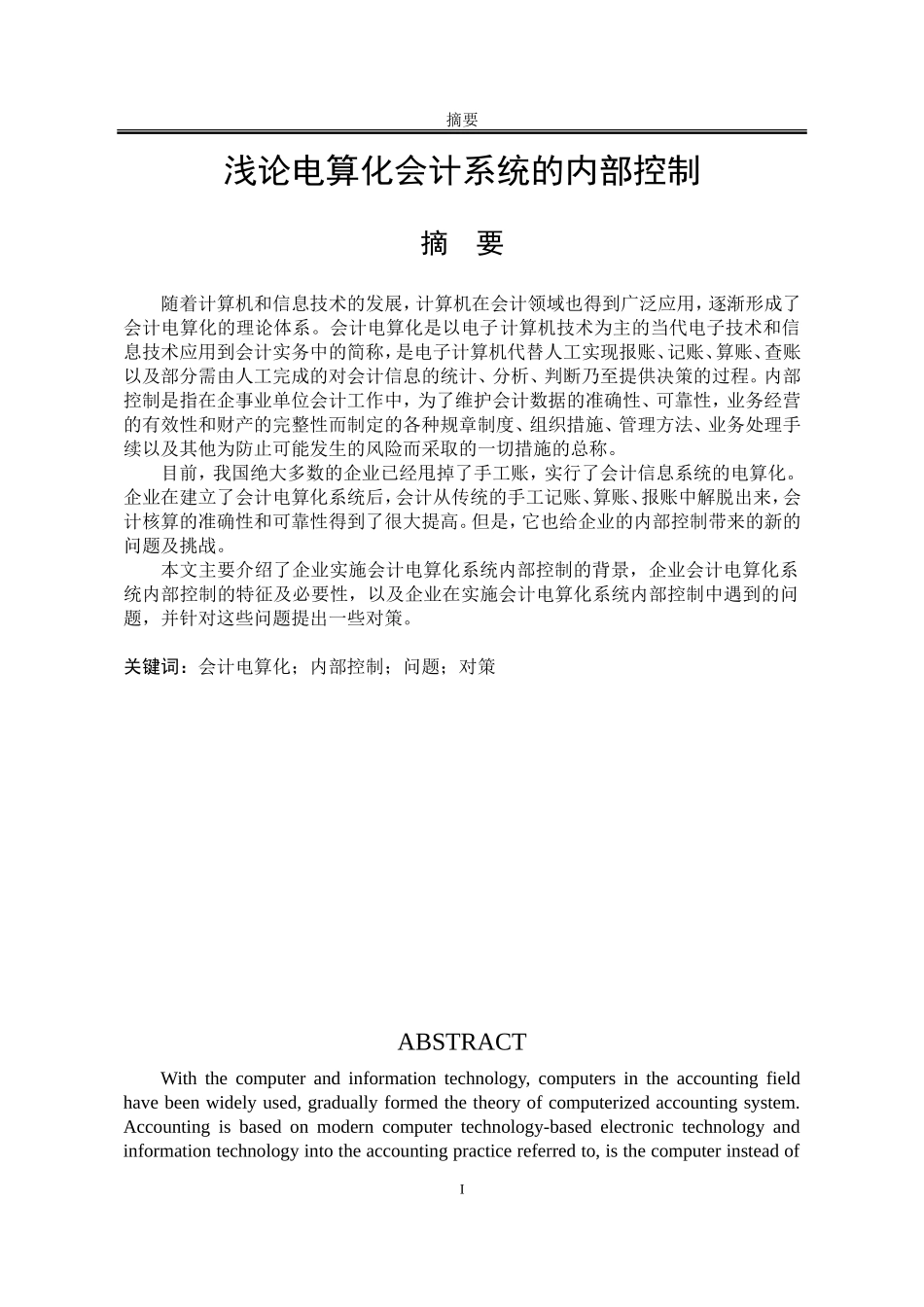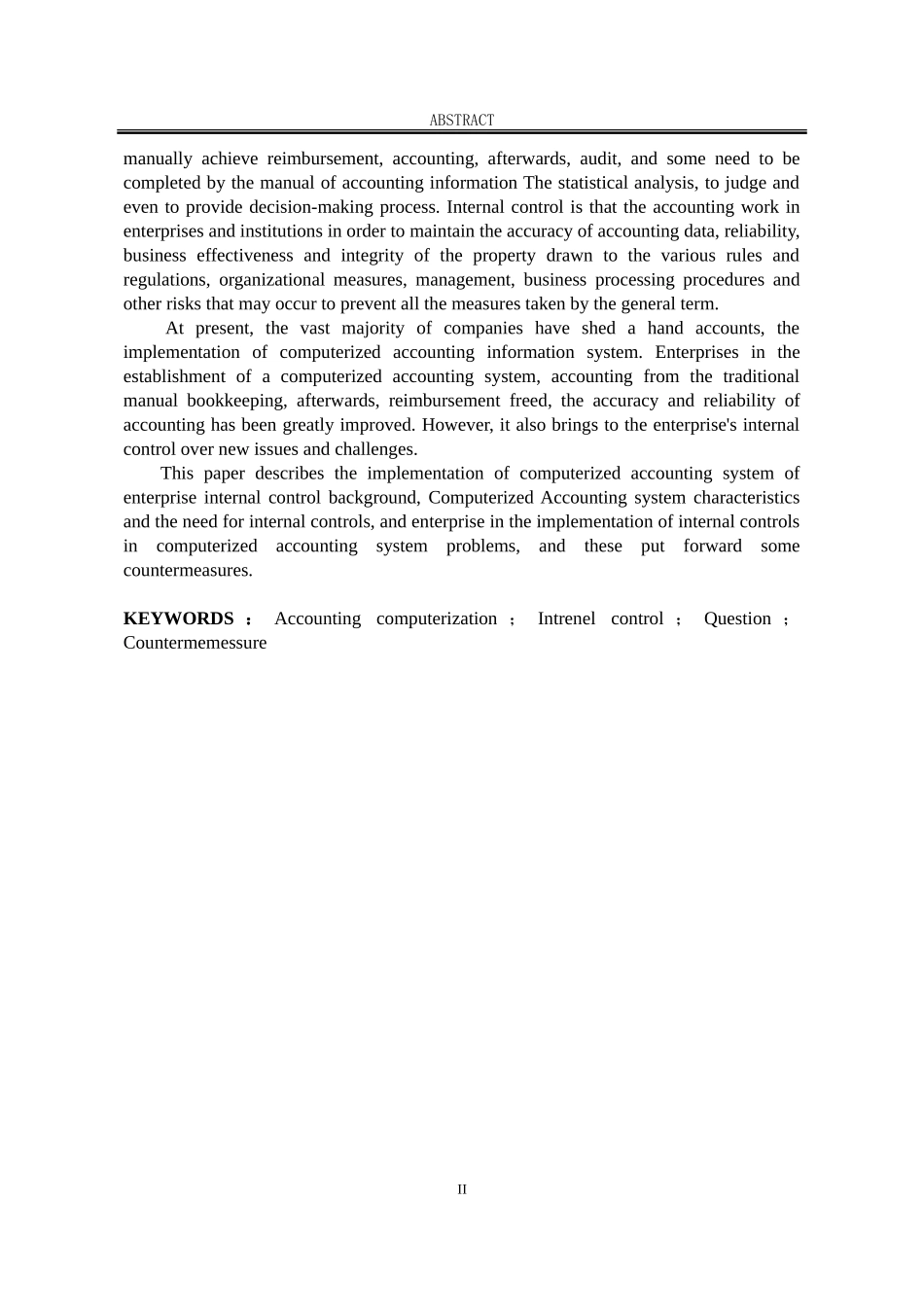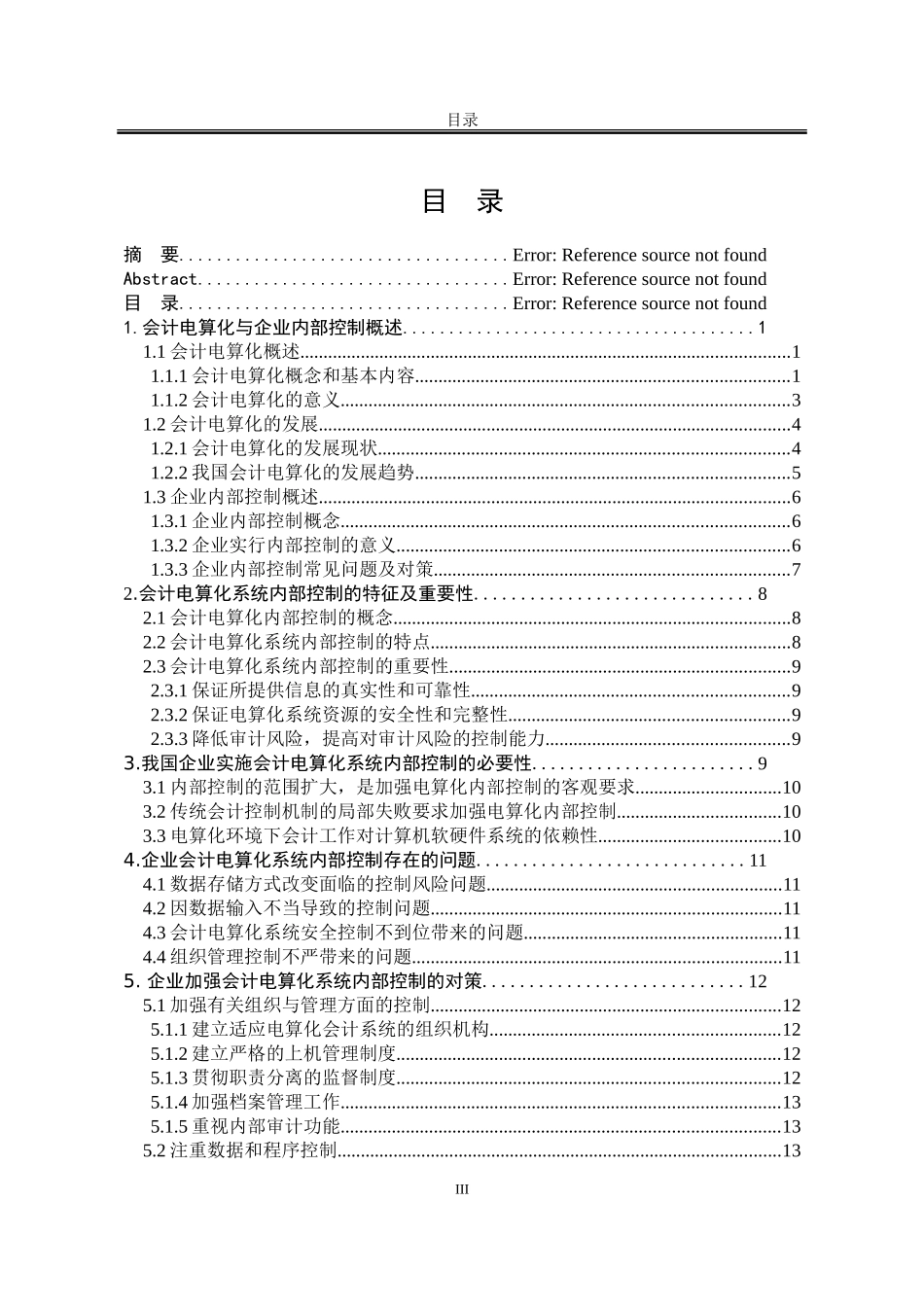I摘要浅论电算化会计系统的内部控制摘 要 随着计算机和信息技术的发展,计算机在会计领域也得到广泛应用,逐渐形成了会计电算化的理论体系。会计电算化是以电子计算机技术为主的当代电子技术和信息技术应用到会计实务中的简称,是电子计算机代替人工实现报账、记账、算账、查账以及部分需由人工完成的对会计信息的统计、分析、判断乃至提供决策的过程。内部控制是指在企事业单位会计工作中,为了维护会计数据的准确性、可靠性,业务经营的有效性和财产的完整性而制定的各种规章制度、组织措施、管理方法、业务处理手续以及其他为防止可能发生的风险而采取的一切措施的总称。目前,我国绝大多数的企业已经甩掉了手工账,实行了会计信息系统的电算化。企业在建立了会计电算化系统后,会计从传统的手工记账、算账、报账中解脱出来,会计核算的准确性和可靠性得到了很大提高。但是,它也给企业的内部控制带来的新的问题及挑战。本文主要介绍了企业实施会计电算化系统内部控制的背景,企业会计电算化系统内部控制的特征及必要性,以及企业在实施会计电算化系统内部控制中遇到的问题,并针对这些问题提出一些对策。关键词:会计电算化;内部控制;问题;对策ABSTRACTWith the computer and information technology, computers in the accounting field have been widely used, gradually formed the theory of computerized accounting system. Accounting is based on modern computer technology-based electronic technology and information technology into the accounting practice referred to, is the computer instead of IIABSTRACTmanually achieve reimbursement, accounting, afterwards, audit, and some need to be completed by the manual of accounting information The statistical analysis, to judge and even to provide decision-making process. Internal control is that the accounting work in enterprises and institutions in order to maintain the accuracy of accounting data, reliability, business effectiveness and integrity of the property drawn to the various rules and regulations, organizational measures, management, business processing procedures and other risks tha...


